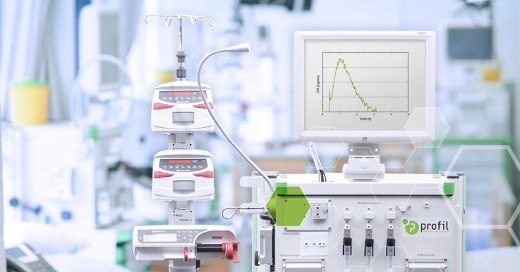Background
Diabetes is a multidimensional challenge for global societies. Despite the availability of drugs and technology many patients don’t reach their treatment goals. According to the UK National Diabetes Audit data 2016-2017 only 30% of people with type 1 diabetes and 67% of people with type 2 diabetes achieved a HbA1c target of ⩽58 mmol/l (7.5%). When considering also blood pressure and cholesterol targets, these figures dropped to 19% and 41% respectively.

The good news is that diabetes leaves a huge room for Innovation. Risk factors are modifyable, type 2 diabetes is potentially reversible and the role of the patient’s self-management is of outstanding importance. Diabetes could serve as a paradigm for cracking down treatment inertia and narrowing the gap between the efficacy of investigational medicinal products seen in well controlled clinical trials and the lower than expected effectiveness of drugs observed in real-world chronic care (E2E gap) [1].
Diabetes is a data management disease
Diabetes was referred to as a data management disease. Informing the patients treatment decisions by a (digital) processing of real-time and real-life metabolic and behavioral data is the procedural core component of contemporary diabetes treatment. Everyday diabetes management leads to the generation of a vast amount of data – leaving exciting opportunities for investment in personalised and intergated diabetes care.
The digital processing of real-life data also has an enormous potential to fully exploit the preventability and reversibility of type 2 diabetes. Moreover, in a collaboration between the JDRF and IBM big data bases are established following the ambition to phenotype type 1 diabetes classes, to predict the onset of type 1 diabetes and to model type 1 diabetes progression.
Digital biomarkers improve clinical trials
The sensor-based collection of real-life data for the assessment of digital biomarkers in diabetes trials have a high potential to greatly improve the external validity of clinical trial outcomes. Continuously collected digital biomarkers will help to model the impact of treatment-effect-modifiers on drug efficiency, to include endpoints relevant for coping with everyday life, and to be earlier in the detection of cardiovascular safety issues. Digital biomarkers will help to substantially economize drug development, reduce treatment inertia, and narrow the E2E gap.
Innovation barriers - cross-sectional approach needed
Although there is a vibrant space for people-centered innovation particularly in diabetes drug development and care provision there are several innovation barriers which need to be overcome in oder to bring clinically validated solutions of high quality to the marketplace. Cross-sectional topics are best addressed in an open and collaborative innovation culture integrating actors from R&D, clinical research, education & training as well as healthcare service provision and reimbursement. Profil is core partner in the EIT Health knowledge and innovation community (KIC) - a public-private-partnership dedicated to promote healthy living, active aging, and improvements in healthcare in Europe [2]. The EIT Health KIC provides such an environment adressing the followig topis in an open and collaborative way with the involvement of all relevant Stakeholders.
- Co-creation: involvement of users and other stakeholders early in the design and evaluation of digital solutions. Joint decision-making power along the lines of marketing authorization, added value definition, and eligibility for reimbursement.
- Data: the debate is on ownership, availability, integrity, and renumeration of data sharing. Data management policies and systems securing inter-operability, privacy and cyber-resilience are considered of utmost importance.
- Regulation: quality assurance and regulatory requirements for lifestyle Apps and Apps which are part of medical devices actively managing the patients’ treatment need to be clarified. Also the exploitation of real-world data repositories for marketing authorisation and informing personalised treatment decisions is a key matter of concern.
Digitalization will enhance drugs, devices and service provision for people with diabetes
Digital diabetes technologies available today such as devices for a real-time continuous glucose monitoring (rtCGM) and automated insulin delivery (AID, artificial pancreas systems) can be considered as transition technologies adhering to a mainly glucocentric approach on developing new anti-diabetic drugs and facilitating the patients’ self-management of diabetes [3].
Digital tools continuously assessing cardio-respiratory functionalities have a high potential for bringing the real-world to the well controlled early phase clinical trials – thereby increasing the predictive value and external validity of these trials. This will help to decrease the risk of cost-intensive discontinuation of drug development programs and to even avoid the costly withdrawal of drugs from the market. The early assessment of digital biomarkers will also contribute to a higher cost-effectiveness of therapies by reducing treatment inertia, thereby narrowing the E2E gap.
Digital solutions are predicted to become gradually integrated as part of interconnected ecosystems combining digital health and social care. Here a comprehensive monitoring of metabolic signatures and parameters reflecting patterns of everyday behavior will produce a huge amount of real‐world data which could be processed by self-learning control algorithms. The outcome will trigger an adjustment of therapies, treatments and behavioral patterns which again will feed back to the captured parameters. Promoting digital innovation for gradually optimising diabetes management in a personalised way will realize the twin objective of improving everyday metabolic control and re‐adapting behavioral habits to prolong the patients independency and prevent the development of frailty & disability and comorbid conditions [3].




